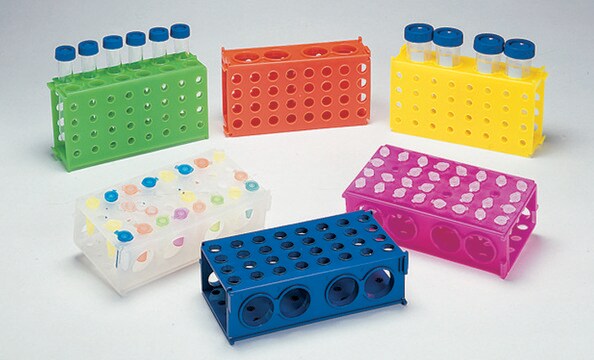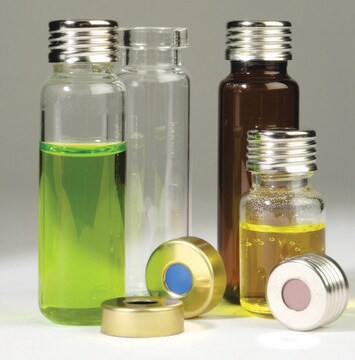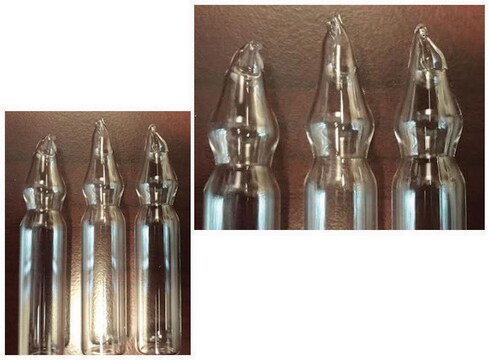Kluczowe dokumenty
T2151
Glyceryl triheptadecanoate
≥99%
Synonim(y):
TG(17:0/17:0/17:0), 1,2,3-Triheptadecanoylglycerol, Triheptadecanoin
About This Item
Polecane produkty
pochodzenie biologiczne
synthetic (organic)
Poziom jakości
Próba
≥99%
Formularz
powder
grupa funkcyjna
ester
typ lipidu
neutral glycerides
Warunki transportu
ambient
temp. przechowywania
−20°C
ciąg SMILES
CCCCCCCCCCCCCCCCC(=O)OCC(COC(=O)CCCCCCCCCCCCCCCC)OC(=O)CCCCCCCCCCCCCCCC
InChI
1S/C54H104O6/c1-4-7-10-13-16-19-22-25-28-31-34-37-40-43-46-52(55)58-49-51(60-54(57)48-45-42-39-36-33-30-27-24-21-18-15-12-9-6-3)50-59-53(56)47-44-41-38-35-32-29-26-23-20-17-14-11-8-5-2/h51H,4-50H2,1-3H3
Klucz InChI
FBFWDBGUSMGXPI-UHFFFAOYSA-N
Szukasz podobnych produktów? Odwiedź Przewodnik dotyczący porównywania produktów
Zastosowanie
- as an external standard in gas chromatography (GC) analysis for soybean seeds lipid extraction
- as an internal standard solution to correct the transesterification efficiency during lipid analysis by gas chromatography-flame ionization detector (GC-FID)
- as an internal standard in chloroform to dissolve total lipids obtained from fresh leaves of N. benthamiana for thin layer chromatography (TLC) analysis and to analyze their fatty acid content using GC
Kod klasy składowania
11 - Combustible Solids
Klasa zagrożenia wodnego (WGK)
WGK 3
Temperatura zapłonu (°F)
Not applicable
Temperatura zapłonu (°C)
Not applicable
Środki ochrony indywidualnej
Eyeshields, Gloves, type N95 (US)
Wybierz jedną z najnowszych wersji:
Masz już ten produkt?
Dokumenty związane z niedawno zakupionymi produktami zostały zamieszczone w Bibliotece dokumentów.
Klienci oglądali również te produkty
Nasz zespół naukowców ma doświadczenie we wszystkich obszarach badań, w tym w naukach przyrodniczych, materiałoznawstwie, syntezie chemicznej, chromatografii, analityce i wielu innych dziedzinach.
Skontaktuj się z zespołem ds. pomocy technicznej















